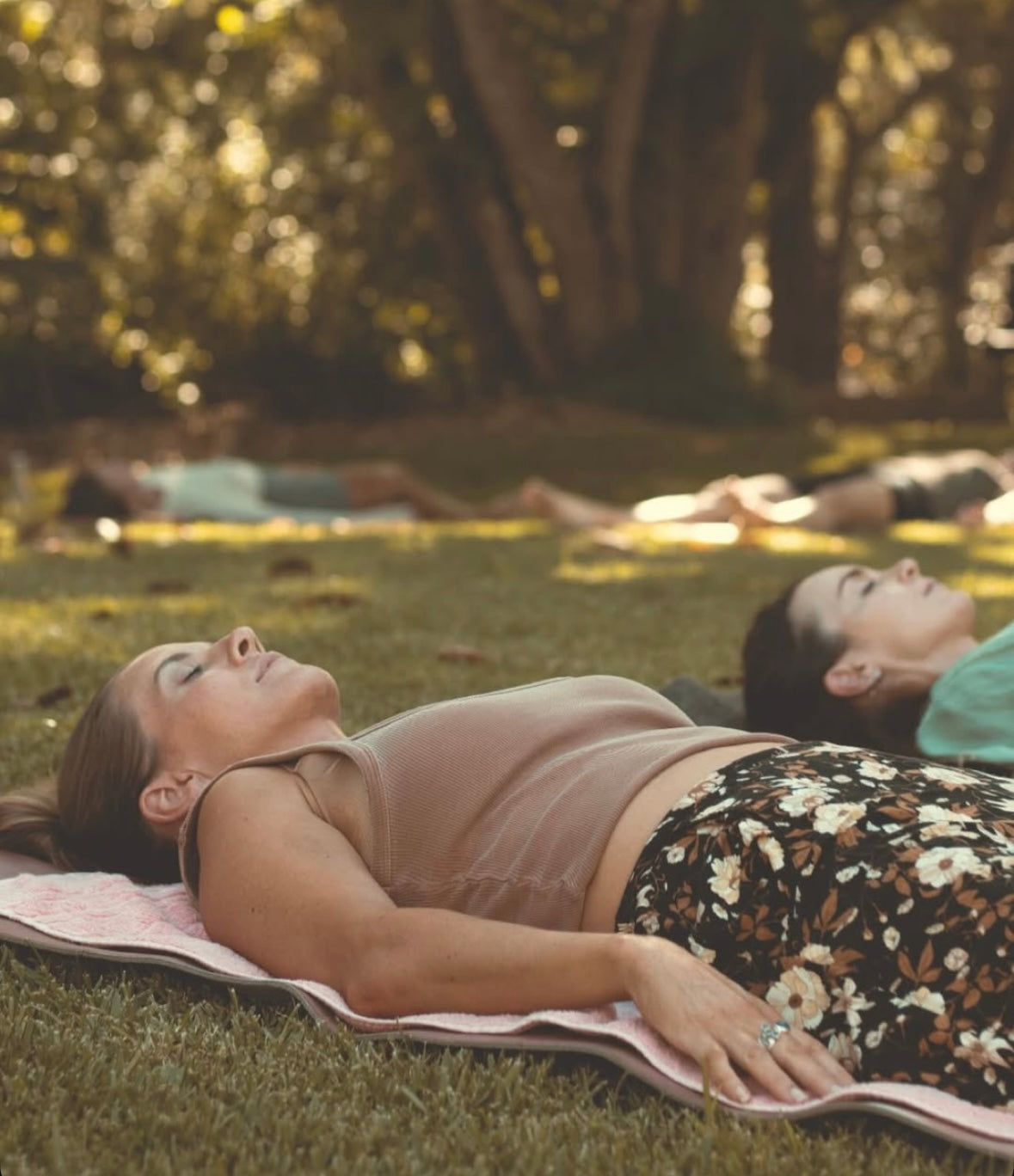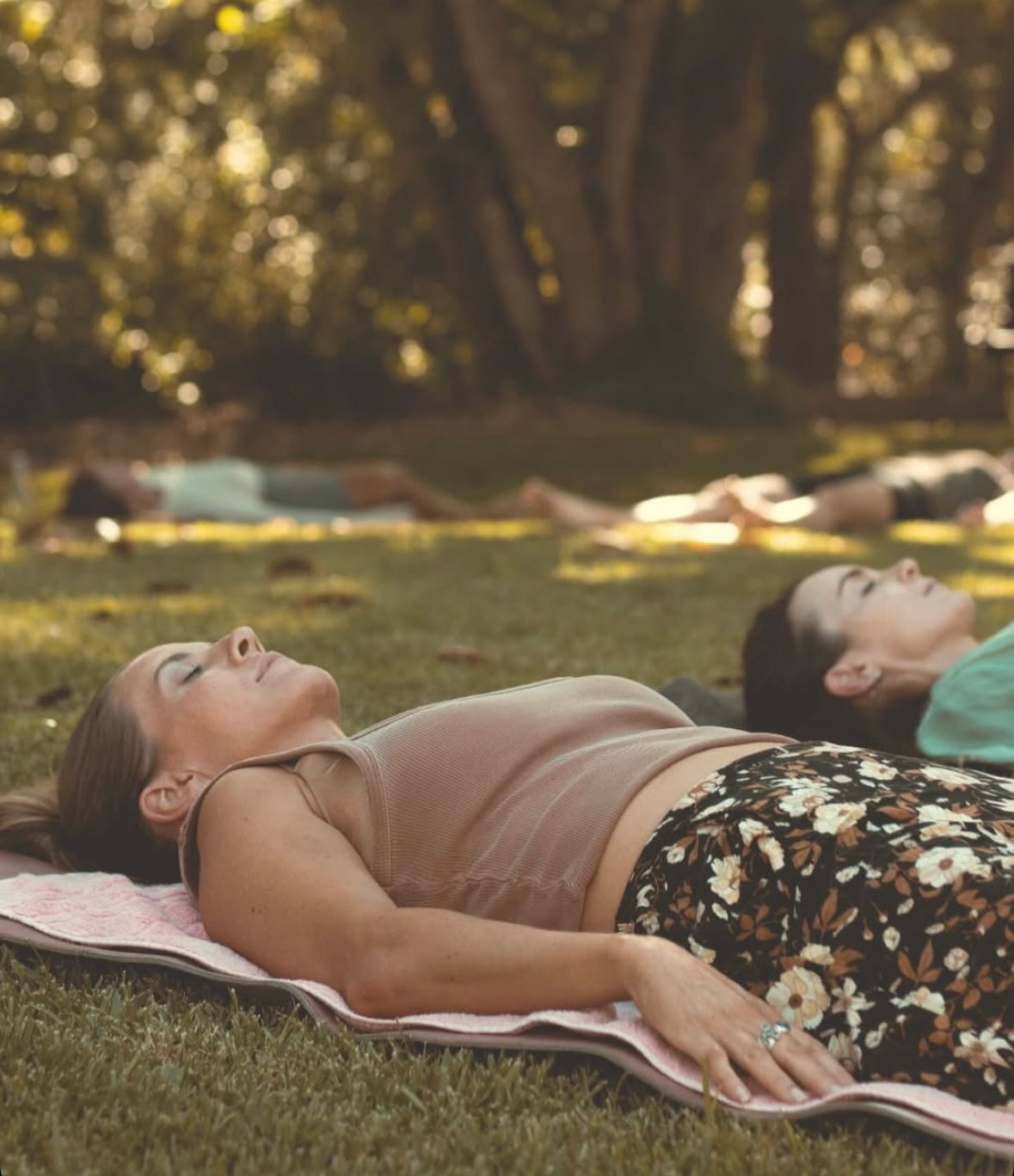Hey! 👋 Do you find yourself tossing and turning in bed, unable to fall asleep despite feeling tired? If so, you may be experiencing sleep latency, the time it takes to transition from wakefulness to sleep. Fortunately, there are several techniques you can try to reduce sleep latency and improve your sleep quality.
1. Meditation:
Meditation has been shown to be an effective way to calm the mind and relax the body before bedtime, making it easier to fall asleep. There are various types of meditation you can explore, including:
Mindfulness Meditation: This involves focusing your attention on the present moment, observing your thoughts and sensations without judgment. You can practice mindfulness by sitting quietly and paying attention to your breath, bodily sensations, or a specific object.
Guided Meditation: Guided meditation involves following the instructions of a teacher or recording that leads you through a series of relaxation exercises and visualisations. This can be particularly helpful for beginners who may struggle to quiet their minds on their own.
Body Scan Meditation: In a body scan meditation, you systematically focus your attention on different parts of your body, from your toes to the top of your head, noticing any sensations you may be experiencing. This can help release tension and promote relaxation.
2. Reading:
Reading a book or magazine before bed is a relaxing way to unwind and distract the mind from worries or stressors. Opt for light, enjoyable reading material rather than stimulating content that may keep you awake. Fiction, poetry, or self-help books can be particularly soothing choices.
3. Switching Off Bright/Blue Lights:
Exposure to bright or blue lights from screens such as smartphones, tablets, and computers can interfere with the body's natural sleep-wake cycle by suppressing the production of melatonin, the hormone that regulates sleep. To reduce sleep latency, consider:
Using Blue Light Filters: Many devices and apps offer blue light filters that can be activated in the evening to reduce exposure to stimulating light. These filters adjust the colour temperature of your screen to emit warmer, less disruptive light.
Limiting Screen Time: Aim to reduce your screen time in the hour leading up to bedtime, and consider engaging in relaxing activities instead, such as reading, listening to calming music, or practicing gentle yoga or stretching exercises.
4. Breathwork:
Practicing deep breathing exercises can promote relaxation and reduce anxiety, making it easier to fall asleep. Experiment with different breathing techniques to find what works best for you, such as:
Diaphragmatic Breathing: This involves breathing deeply into your diaphragm, allowing your belly to rise and fall with each breath. Focus on slow, rhythmic breathing, inhaling deeply through your nose and exhaling slowly through your mouth.
4-7-8 Technique: In this technique, you inhale for four counts, hold your breath for seven counts, and exhale for eight counts. Repeat this cycle several times, focusing on the sensations of your breath and allowing your body to relax with each exhale.
Additional Strategies for Unwinding and Enhancing Sleep Quality
In addition to meditation, reading, dimming lights, and practicing breath work, here are more effective strategies to help you unwind and enjoy superior sleep quality:
The Surprising Benefit of a Hot Shower Before Bed
While it might seem counterintuitive, incorporating a hot shower into your bedtime routine can significantly impact your ability to fall asleep quickly. This simple practice harnesses the body's natural thermoregulation processes to reduce sleep latency—the time it takes to fall asleep.
How It Works: When you take a hot shower, your body's surface temperature increases. After stepping out of the shower, the rapid cool-down period that follows helps to signal to your body that it's time to sleep. This cooling effect mimics the natural drop in core body temperature that occurs in the evening, signalling to your brain that it's time for rest. Essentially, the heat from the shower brings blood to the surface, away from the core, facilitating a quicker cool-down which prepares the body for sleep.
The Science: Research supports the theory that thermal regulation plays a crucial role in sleep onset. A study published in the journal Sleep Medicine Reviews highlighted the link between bathing in warm water and improved sleep quality. The drop in body temperature after a hot shower can hasten the speed at which you fall asleep by affecting the body’s thermoregulatory system, thus reducing sleep latency.
More Practical Tips:
-
Create a Sleep Sanctuary: Your bedroom should be a haven for sleep. Ensure your mattress and pillows are comfortable and supportive. Consider using blackout curtains or Mahalo Eco Blinds to block out light, and keep the room at a cool, comfortable temperature.
-
Limit Caffeine and Heavy Meals: Avoid consuming caffeine or heavy, rich meals within a few hours of bedtime. These can disrupt your sleep cycle and prevent you from falling asleep easily.
-
Establish a Relaxing Pre-Sleep Routine: Develop a pre-sleep ritual that helps signal to your body it's time to wind down. This could include a warm bath, listening to soft music, or gentle stretching or yoga poses designed to relax the body.
-
Use Aromatherapy: Essential oils like lavender, chamomile, or sandalwood can have a calming effect and help prepare your body for sleep. Consider a diffuser in your bedroom or a few drops on your pillow.
-
Journaling: Writing down your thoughts, worries, or planning for the next day can help clear your mind and reduce stress. Keeping a journal by your bed and spending a few minutes jotting down your thoughts can be a therapeutic way to transition to sleep.
-
Mindful Movement: Gentle, mindful exercises such as tai chi or qigong can relax both the body and mind. These practices not only help in reducing stress but also improve sleep quality by promoting a deeper sense of peace.
-
Consistent Sleep Schedule: Try to go to bed and wake up at the same time every day, even on weekends. A consistent sleep schedule helps to regulate your body's internal clock and can improve the quality of your sleep.
By incorporating these techniques into your bedtime routine, you can help decrease sleep latency and improve the quality of your sleep. Experiment with different strategies to find what works best for you, and remember to prioritise consistency and relaxation in your pre-sleep rituals.
Here's to sweet dreams,
Leash xo





